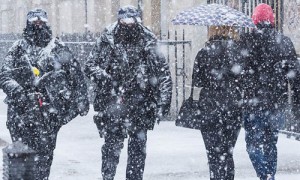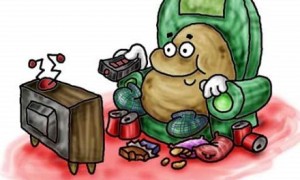Both leaders said Ukraine's stabilization was an urgent task for peace and security, calling for efforts aimed at achieving a political solution to the crisis.
They stressed the importance of holding a "free and fair" presidential election in Ukraine on May 25 as planned, which should take place under the observation of the Organization for Security and Cooperation in Europe (OSCE).
Germany and France would draw "corresponding consequences" as outlined by the European Council on March 6 if there is no "internationally recognized presidential election", according to the statement.
They expressed support for starting a national dialogue in Ukraine before the election, during which relevant issues should be discussed, including the constitutional structure and decentralization of Ukraine.
Asked about European energy policy at a joint conference Saturday, both leaders expressed willingness to work with Poland and others on Poland's proposal of establishing an energy union in a bid to reduce Europe's energy dependence on Russia.
Hollande arrived Friday on the island of Ruegen located in Germany's northern state of Mecklenburg-Western Pomerania for informal talks with Merkel.
A range of issues, from the Ukraine crisis to the upcoming European elections, were on the agenda of their discussions.
With much sight-seeing on the program for Hollande's two-day visit to Merkel's scenic home constituency on the Baltic coast, the meeting was widely regarded as a signal of warming-up of personal ties between the two leaders at the heart of Europe.
Russian President Vladimir Putin said Wednesday Russia had withdrawn an estimated 40,000 troops from the Ukrainian border. Putin on Wednesday also called on the militia in east Ukraine to postpone their referendum slated for May 11.
He said Russia will do whatever it can to resolve the crisis and has a positive attitude toward the peace effort by the international community.







